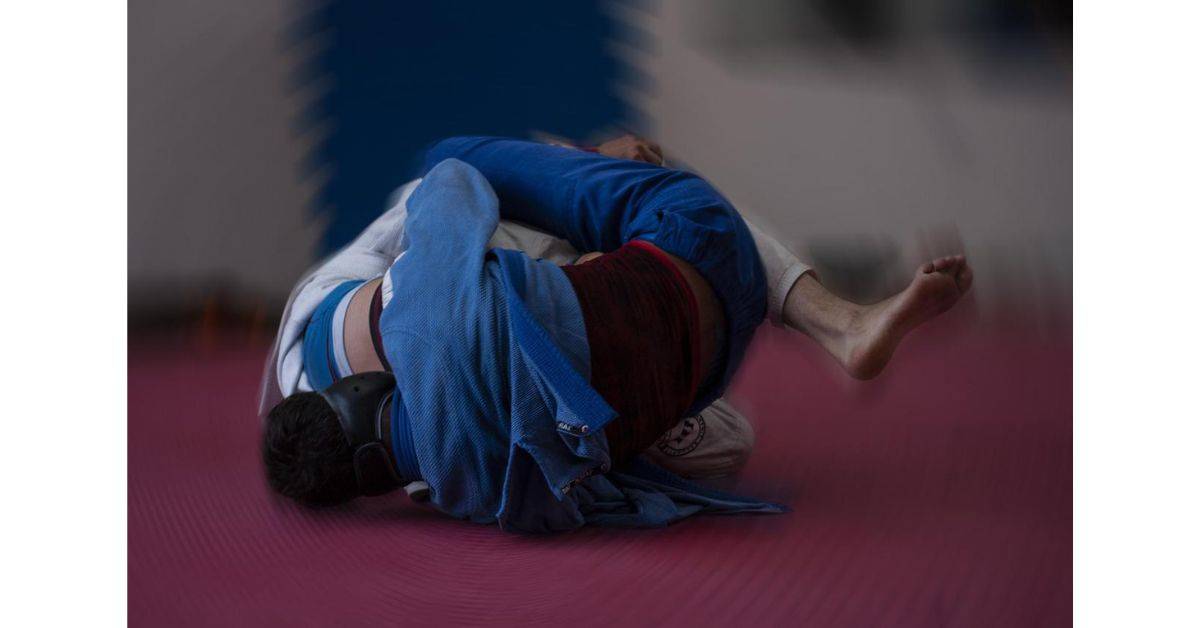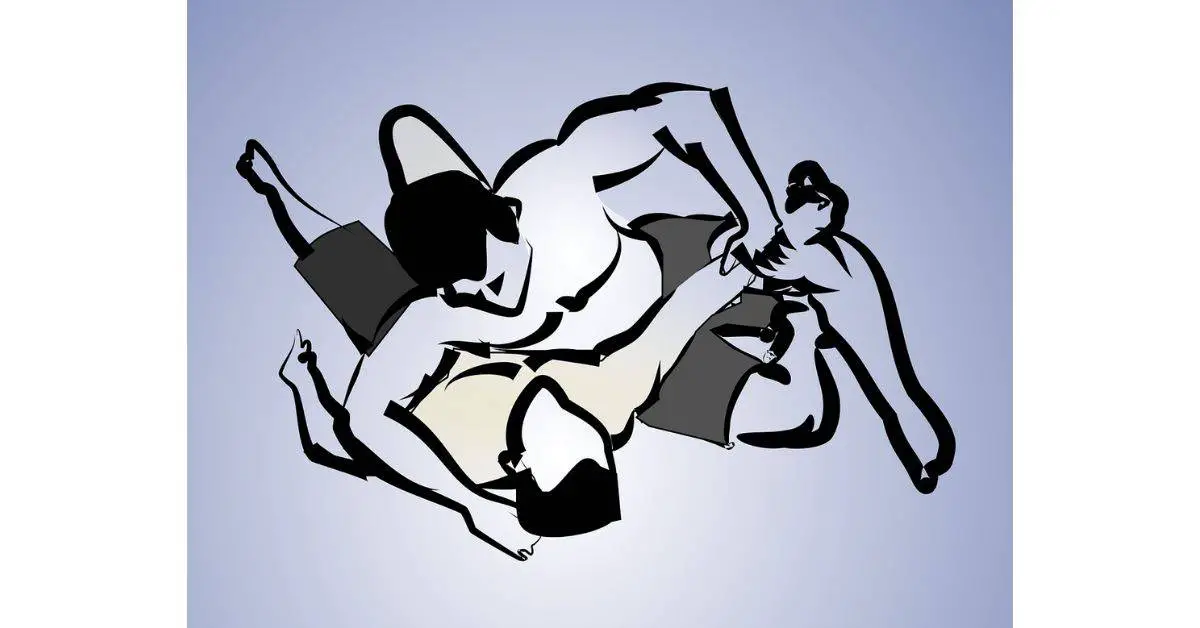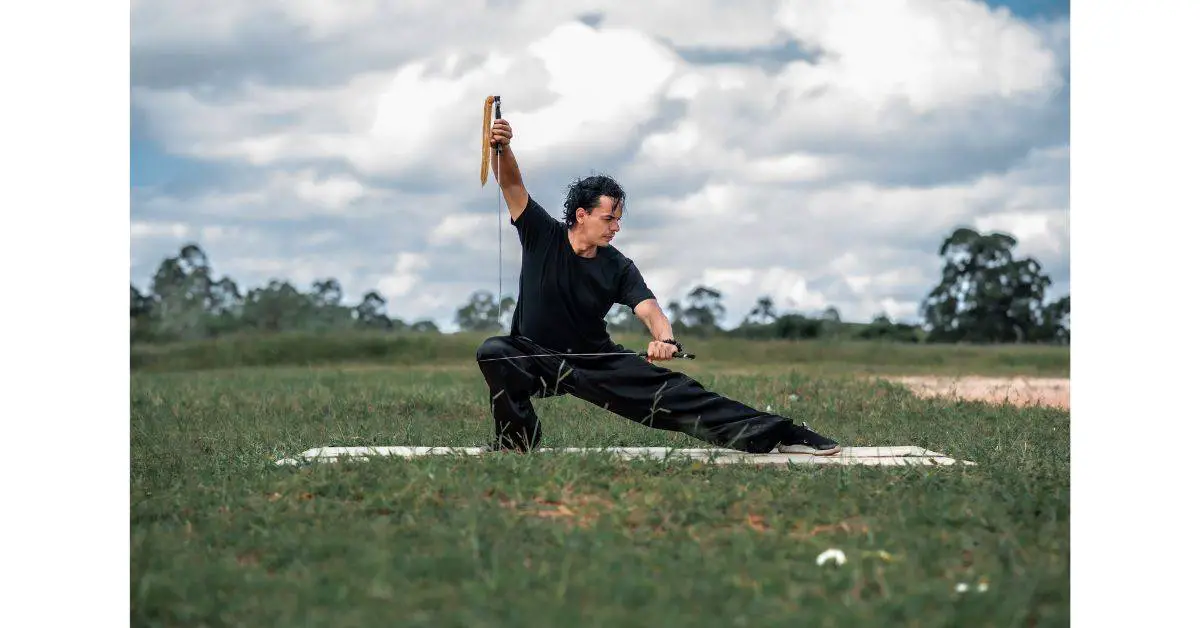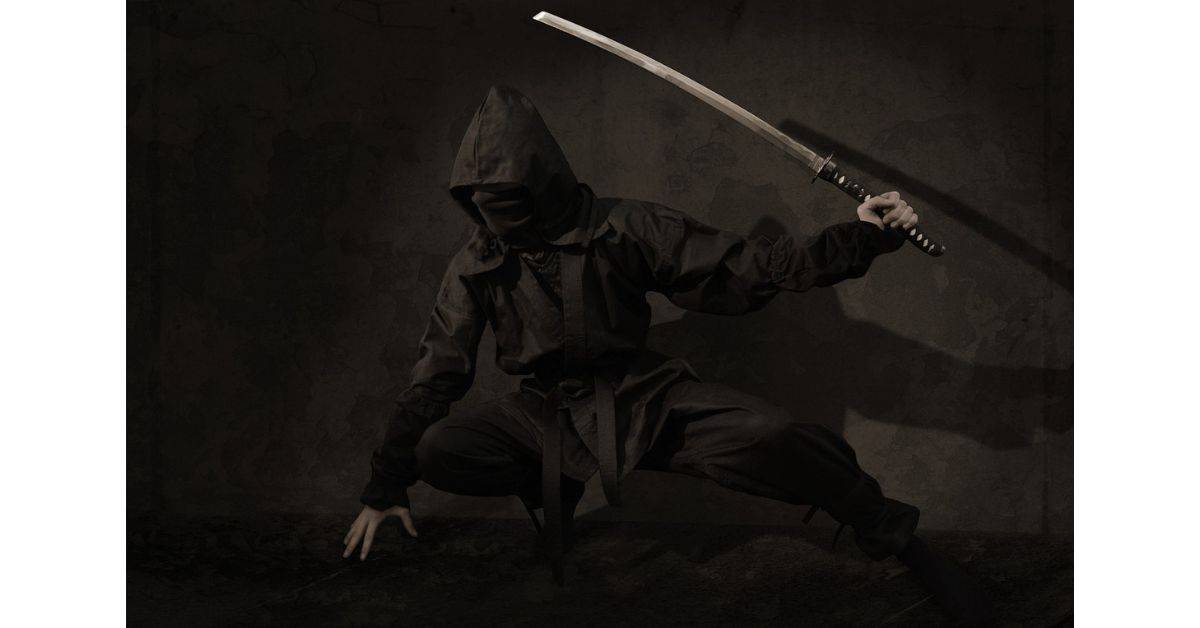There is often a superiority complex that comes with martial arts, the need to distinguish which among many is better. On that note, who will win a fight between a BJJ and a Ninjutsu trainee?
A Ninjutsu trainee will win a fight against a BJJ trainee because it teaches both armed and unarmed combat. A Ninjutsu trainee is prepared and trained for any outcome in a fight situation. Whether the opponent has a weapon or not, one can handle all conditions.
BJJ is one of the most popular martial arts in the present day, while in the 19th century, Ninjutsu gained popularity when films on the enigmatic ways of ninjas flooded the film industry.
Before diving in, if you want to save money by training BJJ at home, ensure you follow the link to an article of mine on the matter.
What Is BJJ?
BJJ is a self-defense martial art and a professional sport. BJJ forms its basis on techniques of grappling, ground fighting and submissions. Likewise, it teaches the student to take down the opponent to the ground, control them, and force them into submission through chokeholds.
BJJ training teaches students to overcome opponents of greater strength and size by using a stable stance, firm grip and superior leverage. It teaches how to understand the limits and operation of the human body. This concept comes from traditional Japanese Jujitsu.

Unlike other martial arts, BJJ classes don’t involve punching and kicking, but instead focus on grappling techniques. The training includes live drilling, sparring, and submissions. Students engage in drilling, where they fight against resisting and non-resisting partners. Full contact sparring occurs when trainees try to submit their partners technically and positional sparring that includes a set of rules.
After taking down the rival to the ground, the student strives to maintain a dominant primary ground position from where to apply holds. These primary ground positions include the side control, knee on the belly, and back mounts.
Learn more about BJJ vs. other martial arts by following the link!
What is Ninjutsu?
Films popularly characterize ninjas as men in black suits who can appear and disappear out of nowhere, but that is more fiction than fact. So, what is Ninjutsu?
Ninjutsu is one of the most lethal Japanese martial arts that teaches the strategy of espionage, traditional warfare, guerilla warfare, unarmed combat, information collection, infiltration, camouflage, hiding, sneaking, survival in nature, and overcoming natural and artificial barriers.
Japanese schools taught Ninjutsu as a separate discipline that incorporated traditional martial arts such as taijutsu, kenjutsu, bijutsu, bojutsu and shurikenjutsu. The samurai developed Ninjutsu and later advanced it in other provinces, such as the Koka.
The open demonstration of Ninjutsu first occurred in the Genpei war in 1180 when Minamoto Yoshitsune selected some fighters to work as Shinobi during battle. Historically, the Shinobi acted as spies for their covertness and deceit.
Ninjutsu is an assortment of survival techniques during war and political turmoil—additionally, ninjas trained in archery, disguise, medicine, concealment and escape. Assassination and espionage were instrumental skills to have in feudal Japan at the time.
Unlike present-day martial arts such as Judo, Ninjutsu is not centralized; therefore, the historical lineage of most schools is unclear. However, Bujinkan is an international association representing various modern Ninjutsu styles. Nevertheless, the historical heritage of this style is unknown.
Which is better, Ninjutsu or BJJ?
BJJ and Ninjutsu are two suitable martial arts for fighting because they’re martial arts. That’s why their purpose is to teach others self-defense and ensure they know how to fight. Nevertheless, which is better?
Both Ninjutsu and BJJ are fantastic fighting style, but neither is necessarily better than the other, as they are both martial arts. Ninjutsu is a lethal, well-rounded martial art that teaches armed and unarmed combat. At the same time, BJJ is a grappling martial art that teaches effective fighting techniques.
BJJ is a weaponless martial art that forms its basis on grappling, submissions, holds and ground fighting. Training in BJJ focuses on live sparring, which enables the student to effectively practice technique execution.

Although most street fights commence while striking the opponent in a standing stance, the likelihood of one of the individuals ending up on the ground is high. BJJ focuses on ground fighting, which looks like an approach that will put one at an advantage over their opponent.
Regardless of whether your opponent is a skilled boxer, they are defenceless when they get to the ground. Fighting in an upright stance puts one at a higher risk of injuring themselves while throwing a punch or a strike with unprotected body parts.
Ninjutsu’s reputation precedes it, as it teaches a wide range of combat skills, both armed and unarmed. The martial art nourishes spiritually, mentally and physically as it teaches all rounded skills of a good fighter. During the war in Japan, Ninjutsu aided the samurai in survival; this serves as a stamp on its credibility.
Of course, other martial arts play a major role; if you want to read more about BJJ vs Muay-Thai, ensure you follow the link to a piece of mine on the topic!
Which is better for self-defense, Ninjutsu or BJJ?
BJJ is one of the most practical self-defense martial arts, while Ninjutsu is the deadliest martial art. Which begs the question, which of the two is better?
Ninjutsu is better for self-defense, as it teaches both armed and unarmed combat. Likewise, it teaches a wide range of skills such as horsemanship, swordsmanship, espionage, spiritual refinement, water training, geography, meteorology, tactics, throwing, rope techniques and pyrotechnics.
Ninjutsu teaches students the basic unarmed combat techniques that most Japanese martial arts teach such as joints, movements, throws and kicks, and so much more.
As a result, it holds its foundation on the following martial art skills:
- Bojutsu- which emphasizes training with a bo staff.
- Kenjutsu- teaches sword-drawing skills.
- Sojutsu- spear fighting with a weapon known as the Yari.
- Naginatajutsu- focuses on training with a long pole that has a curved blade attached to it.
- Kusarigama- involves training with a weighted chain and a small sickle.
- Shuriken- it trains on how to use the shuriken, small hand weapons that can be thrown towards the rival or used close up to slash and stab the opponent.
- Hensojutsu- trains on how to camouflage and impersonate another individual.
- Taijutsu- is a Japanese martial art focusing on soldier equestrianism.
- Hojojtsu- teaches how to use ropes to constrain and incapacitate the opponent.
- Intojutsu- teaches how to break free when caught and stay in concealment.
During the time of war in Japan, the samurai used Ninjutsu to protect themselves. Assessing all these factors, it is clear that Ninjutsu offers a variety of practical self-defense techniques.
Should I learn Ninjutsu?
Having understood both martial arts, should anyone learn Ninjutsu?
It would be best to learn Ninjutsu as it teaches powerful, effective self-defense techniques. In addition, Ninjutsu can help you lose weight, build muscle mass, and improve your self-confidence and mental health.

Ninjutsu teaches deadly techniques that can get you out of any life-threatening situation, as it teaches both armed and unarmed combat.
Ninjutsu training involves intense strength exercises that can help build muscle mass if combined with proper nutrition and muscle recovery. After some months of Ninjutsu training, depending on your body type, age and other factors, you will start witnessing tremendous weight loss because Ninjutsu is a full-body workout that works all the core muscles of your body.
When an individual experiences weight loss and muscle definition, their body adopts a good physique, which boosts their self-confidence. Ninjutsu improves your mental health, as it is mentally and spiritually nourishing.
A study conducted by Dr Chung to examine if martial arts practice and philosophy have any quantifiable benefits for daily life and work showed significant high scores for Body Mind and Health Index of people who engage in martial arts. (Research Gate)
Final Words
Ninjutsu is superior to BJJ in fighting technique, as it offers a wide range of learning skills.
No martial art is undoubtedly better than the other. However, Ninjutsu is a better self-defense martial art than BJJ, as it educates on both armed and unarmed combat. Likewise, it has many other benefits, such as weight loss and building muscle mass.
Enrol in a Ninjutsu class today and up your self-defense game.
If you enjoyed reading this article, follow the link to learn why Brazilian Jiu-Jitsu is the most effective martial art.

